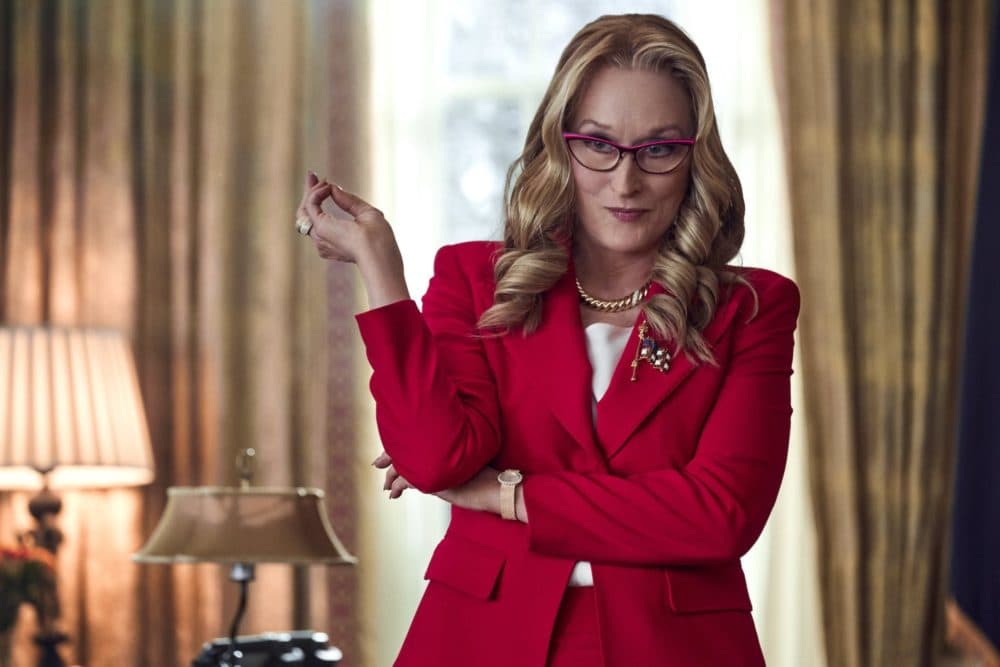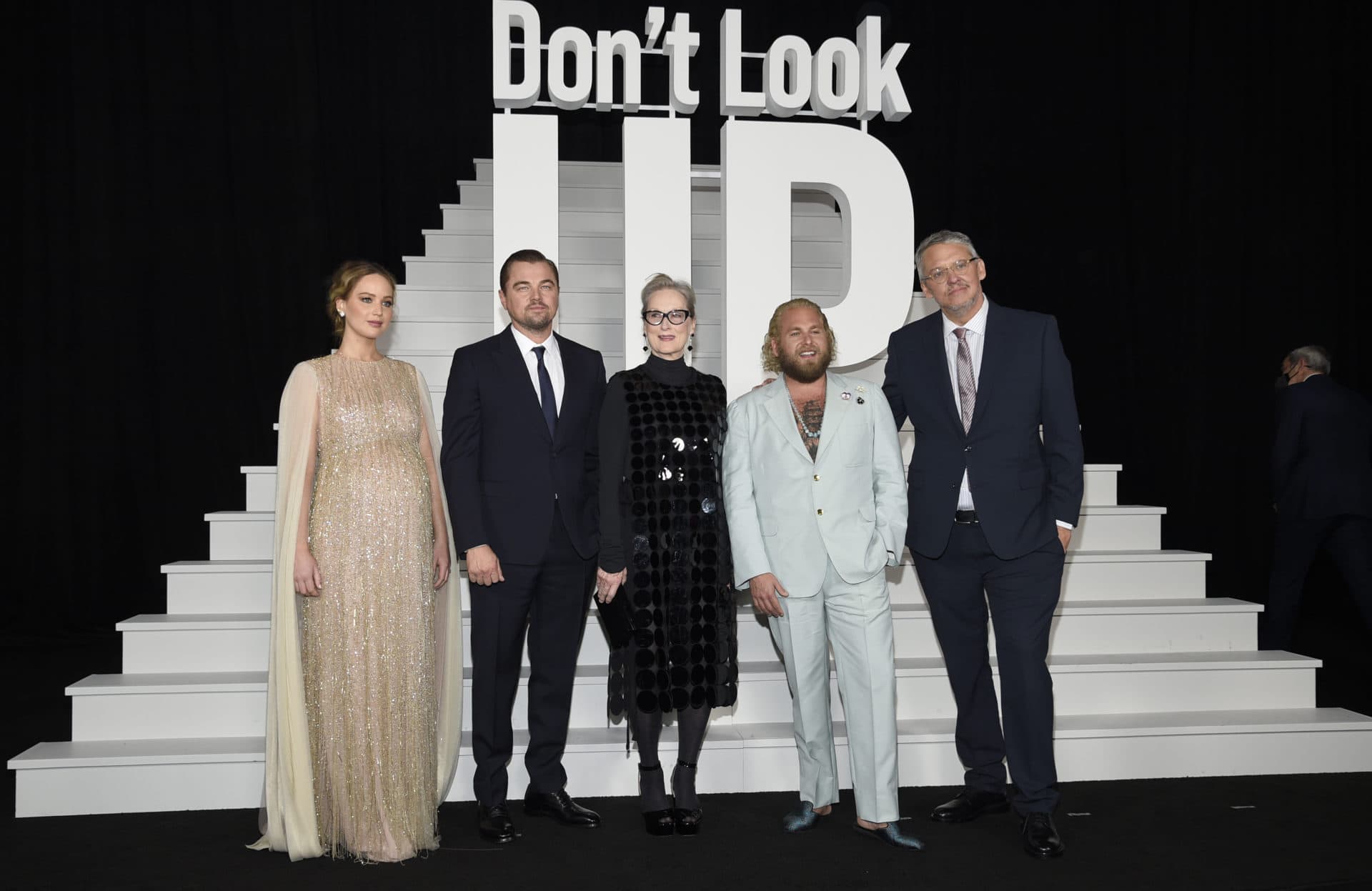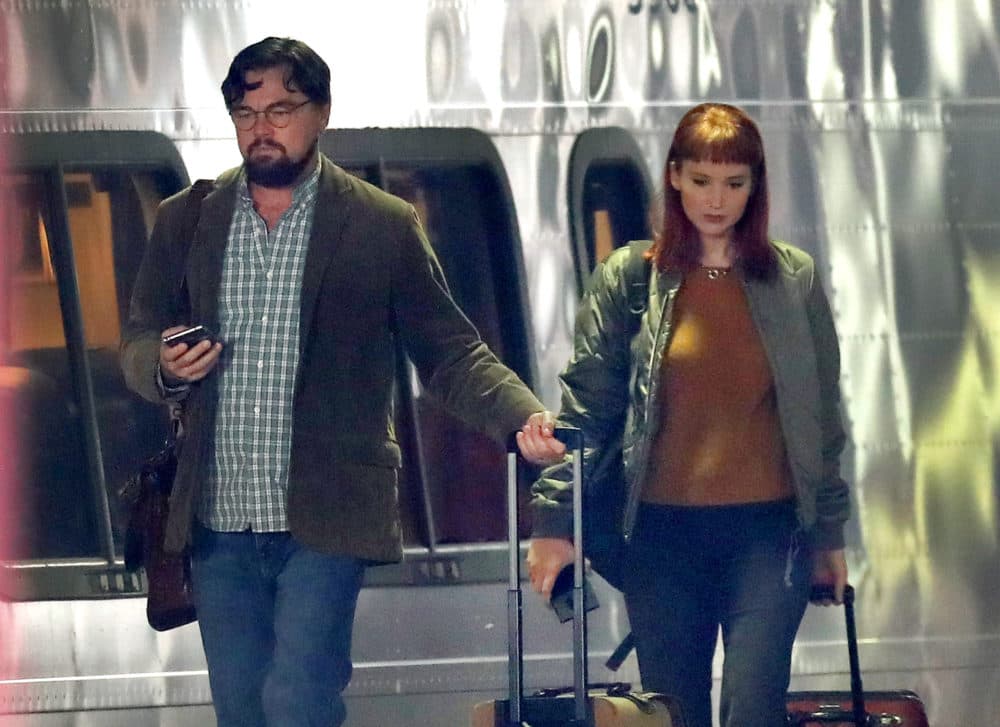Advertisement
Commentary
'Don't Look Up’ has a villain problem

When they open the envelope for Best Picture at the Oscars this Sunday, a film about climate change may be awarded the honor. "Don't Look Up," directed by Adam McKay, isn't the favorite, but its nomination has generated ample buzz.
We're at a point where the climate crisis is not just a matter of scientific and political concern but equally a salient cultural phenomenon. In recent years, there has been a profusion of books, blogs, podcasts and television programming focused on climate risks.
Among the handful of Hollywood's notable climate-related films, "Don't Look Up" stands out for being less about the effects of climate change and more about the way cultural forces have attenuated the urgency of the climate crisis.

Other movies have used climate change as a vehicle for dark satire. "Downsizing" (2017), starring Matt Damon, takes place in the near future when scientists can shrink people to a height of a few inches in order to reduce their carbon footprint. (Bizarrely, Tucker Carlson lashed out at climate scientists last year for supposedly advancing the concept as a serious proposal.)
Some earlier climate-themed films fell squarely in the realm of dystopian science fiction. For example, "The Day After Tomorrow" (2004) depicts catastrophic weather disruption brought on by climate change, and the critically-acclaimed "Snowpiercer" (2013) tells the story of a train circling Earth after a failed attempt to solve the climate crisis with geoengineering.
"Don't Look Up," Netflix's second most-watched movie ever, is different. Instead of imagining a hellish post-apocalyptic world in the wake of climate catastrophe, it focuses attention on the dysfunctions in present-day society that prevent us from confronting the gravity of the climate crisis.
Among the film's primary targets are the news media, portrayed as purveyors of fatuous and easily digestible content. "It's something we do around here," says bantering morning-show host Brie Evantee (Cate Blanchett) after scientist Kate Dibiasky (Jennifer Lawrence) explains the planet's impending doom. "We just keep the bad news light."
Advertisement
Screenwriter David Sirota portrays media personalities as vacuous and self-absorbed, obsessed with ratings and social media analytics. Following the scientists' initial appearance on television to announce their ominous discovery, they review a disappointing PowerPoint showing "clicks overall were below basic traffic and weather stories."
['Don't Look Up'] focuses attention on the dysfunctions in present-day society that prevent us from confronting the gravity of the climate crisis.
The filmmakers bitingly mock the values of the consumer culture. As the fateful climax approaches, the president's chief of staff (and son) Jason Orlean (Jonah Hill) offers a crass "prayer for stuff," lamenting the loss of "sick apartments and watches, and cars and clothes."
Tied to this consumerism theme, "Don't Look Up" aims its most scathing critique at the tech elite. The all-powerful Peter Isherwell (Mark Rylance) — a composite CEO drawn from Jeff Bezos, Steve Jobs, Elon Musk and others — has at his fingertips a vast trove of personal data on every individual, including the knowledge of when and how we'll all die. It is his greed, hubris and unquestioning genuflection to technology that ultimately condemns the world to its unhappy ending.
The filmmakers imply that the combined effects of profit-driven news media, obsessive consumerism and digital servitude to screens of all sizes are conspiring to sabotage an effective response to the climate crisis. Their critique says more about why we've failed than what we should be doing.
The diagnosis is incomplete. The film's clever structure establishes a metaphor for an endangered world in which Comet Dibiasky stands in for the climate emergency. But unlike climate change, the comet wasn't caused by humans.
The climate crisis originated here on Earth, in the industrial era, the result of failing to curb the production of greenhouse gases over a period of decades. The problem with "Don't Look Up" is that it lacks any allegorical linkage to the hegemony of fossil fuels in the modern world.

It feels wrong to indict consumers, the media and the tech giants while letting Big Oil off the hook. Despite knowing since the 1970s the warming effects of excess atmospheric carbon, the industry has consistently tried to obfuscate the dangers of its products. And it forecasts no decrease in oil and gas production for many years to come.
The absence of an analog to the global fossil-fuel cabal is an excusable oversight because the film's ultimate aim is to convey the exigency of the climate crisis. And even though the storyline emphasizes the relevance of scientific clarity in driving public perception, the film relies on emotion to reach out to the anti-science subculture that denies objective facts even in the face of overwhelming evidence.
At many points in the film, there are poignant scenes, lasting only a few seconds, that evoke the fragility and interconnectedness of all life — a mother hippo nudges her baby; blue whales swim serenely; a pollen-laden honeybee hovers over a blossom; the iconic "pale blue dot" floats in the blackness of space. It's a subtle but powerful reminder that the entire biosphere, in which humans are one species out of millions, is at stake. Climate change threatens to break the bones of the planet's ecosystems in a calamitous slow-motion impact every bit as destructive as a comet.
So, will a film about climate change win an Oscar? Al Gore's "An Inconvenient Truth" won Best Documentary Feature in 2007.
Personally, I'm rooting for "Belfast."
